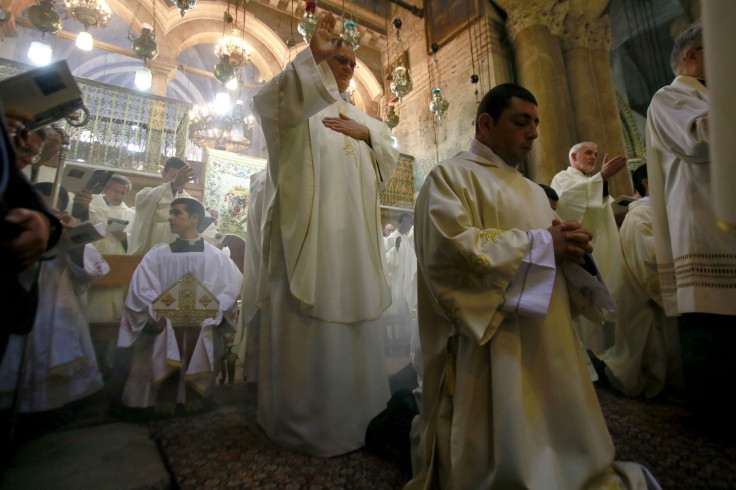Vatican Says Catholics Should Not Try To Convert Jews

Catholics should not try to convert Jews to Catholicism and should instead work with them to combat anti-Semitism, the Vatican said in a major new document released Thursday that demonstrates a continued smoothing of what was long a rocky relationship between the two faiths.
The Vatican's Commission on Religious Relations with Jews said in the document that Christianity and Judaism are linked and that God never negated his covenant with the Jewish people. The document's release coincided with the 50th anniversary of the historic Vatican statement that rescinded the church's previous belief in collective Jewish guilt for the crucifixion of Jesus Christ.
“The church is therefore obliged to view evangelization to Jews, who believe in the one God, in a different manner from that to people of other religions and worldviews,” read the document.
It went on to rebuke anti-Semitism and reminded Catholics of their religion's Jewish roots.
"A Christian can never be an anti-Semite, especially because of the Jewish roots of Christianity," it said.
The document was clear about what it expects from the Catholic Church in terms of missionary activities toward Jews.
“In concrete terms this means that the Catholic Church neither conducts nor supports any specific institutional mission work directed towards Jews,” the document read.
Thursday's move marks the first time the church has so clearly repudiated active conversion of Jews in an official document.
Some Jewish groups welcomed the move.
"The new 'Reflection' document clearly repudiates replacement or supersessionist theology; and expresses an increasing appreciation and respect for Jewish self-understanding, reflected in recognizing the place of Torah in the life of the Jewish people," said Rabbi David Rosen, the American Jewish Committee's International Director of Interreligious Affairs, in a statement.
But Rosen said the document didn't go far enough, adding that it failed to recognize "the centrality that the Land of Israel plays in the historic and contemporary religious life of the Jewish people."
© Copyright IBTimes 2025. All rights reserved.





















